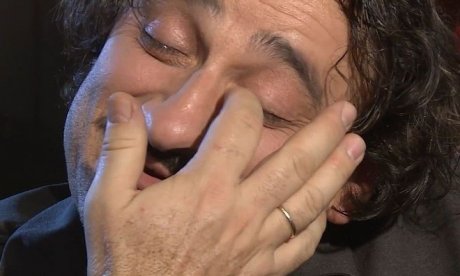Sanctions against Russia: Cyprus and Finland say 'NO'! Greece?
The Greek government was tied to the chariot of the West ignoring the close economic ties with Moscow. The Greek people, though, pay the cost.

The Foreign Minister of Cyprus, Ioannis Kasoulides, was opposed on the imposing of new sanctions on Russia from the EU, in the informal Council of Foreign Affairs, in Milan.
Mr. Kasoulides said that the process of sanctions does not accomplish the desired results.
After noting that the solution of the Ukrainian crisis cannot be military, but political, suggested the EU's efforts to focus on mediation procedures, with a view to agreeing a cease-fire and truce and bring both sides to the table of negotiation.
Finland was the first
Similar was the attitude of Finland which clarified its position from the start and opposed to the imposition of sanctions in Moscow on the issue of Ukraine.
Greece, by contrast, was in favor, though at a great cost to its economy.
The Greek government without thought, tied once again to the chariot of the West, not "weighed" properly the pros and cons and decided to be against Russia, regardless of their economic links.
Despite the severe economic crisis, the trade with Russia in 2013 reached 7 billion dollars. It is no coincidence that Putin, in his meeting with the Greek Prime Minister Antonis Samaras said that "the results in the tourism sector are impressive, as well as one million 200 thousand Russians visited Greece last year." In response, Mr. Samaras stressed that "there is no stagnation in Europe's relations with Russia, but on the contrary, they grow." Also, the Greek Prime Minister expressed the hope that Russia will participate in privatizations in Greece, particularly the railways.
Nevertheless, and despite the fact that the Greek-Russian relations began to be reheated after 2009, Greece suddenly decided to "break" everything. First, was Ev. Venizelos, who went proudly to welcome the new government of Ukraine and Mr. Poroshenko.
But then, when sanctions were imposed by the European Commission in Moscow, Greece hesitated to disagree with the Europeans and say 'no' to the sanctions.
The result from these sanctions was Russia to declare an embargo on agricultural and livestock products and Greece to suffer huge financial loss.
Greece is without stock
Comparing the attitude of Greece and Finland in the "war of sanctions", it is appropriate to set out the words of the director of the Finnish Centre for Strategic Inventory, Ilki Kananen, who said: "Today, 70% of the energy consumed in Finland is supplied from Russia. Nearly all of the crude oil, coal and natural gas is imported from Russia. Until now, sanctions have not affected significantly the strategic reserves. In the European context, Finland has large reserves in case of crisis. In storage areas are the necessary quantities of oil, natural gas, wheat, medicinal and industrial raw materials."
Can Greece boast of similar stocks at this time? Of course not. Greece is "naked." Yet the Greek government continues to beg the Europeans to give her little extra money in order to give it to the ruined farmers. As for the unsold production? It is rotting in warehouses.
Czech Republic, Italy, France
Finland is not the only country to condemn the imposition of EU sanctions against Russia. The Czech president, Milos Zeman, blames the EU because it made the first step, thus raising Russian countermeasures. "Any additional sanctions, - he says -, is a meaningless and ineffective measure because, after these, will follow countermeasures."
In turn, the leader of the Italian party "Lega Nord", Matteo Salvini, called on Brussels to lift sanctions against Russia. He spoke in a more emotional tone compared with the leaders of Finland and the Czech Republic, however, is a fact that the economic situation in Italy, -even before the imposition of Russian countermeasures-, was far from good. "Only fools in Brussels and Rome could apply economic sanctions against Russia. Who will compensate our producers? Matteo Renzi? Merkel?", asks the secretary of the party, arguing that "the sanctions against Russia should be removed immediately."
During his meeting with Putin, the leader of the party "Movement for France," Philippe de Willy, expressed confidence, that the policy of Brussels finds no support from the people in Europe.
From Greece? No one!
In this very difficult situation for our country, no one said no to the directorate in Brussels. There was no one to defend the interests of our country. There was no one to say that Russia and Greece are bind with close economic ties, but also with historical and religious.
It is obvious that Greece is following the attitude of Merkel. The cost of this course, though, is paid by the Greek people.
Trending








.jpg)



.jpg)




.jpg)


